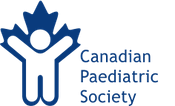The dangers of teen gambling
OTTAWA—Health care providers, parents and governments need to pay closer attention to gambling among Canadian adolescents, according to a new position statement published today by the Canadian Paediatric Society (CPS).
Although gambling by minors is illegal, many adolescents are involved in legalized and self-organized gambling activities, both at home and in school. Underage gambling can start in children as young as 9 and 10 years of age and most Canadian teens say they have gambled at least once.
“If children are playing cards or dice games for money—even if it’s with their family members—then they are gambling,” says Dr. Jorge Pinzon, chair of the CPS Adolescent Health Committee and co-author of the statement. “It seems harmless, but as kids get older, these behaviours can develop into more serious gambling activities. And far too many youth develop problems with gambling.”
Overall, adolescents are two to four times more likely to have gambling problems than adults. As they get older, teens usually gamble more with their friends and classmates—from betting on sports to online gambling games.
“It’s normal for adolescents to experiment with risky behaviours such as gambling. This can make them more vulnerable to developing a gambling problem,” explains Dr. Pinzon. “Parents, teachers, and healthcare providers need to be aware of risk factors including depression, impulsivity, antisocial behaviours, and changes to behaviour such as skipping school or lying to hide their gambling.”
Among the CPS recommendations:
- Physicians and healthcare providers should screen for gambling problems, as well as depression and suicide risk in adolescents already known to have a gambling problem.
- Parents should be aware of the signs of problem gambling and monitor their children’s online activities and gambling habits.
- School boards should increase awareness among staff of gambling problems in youth, encourage counsellors to talk with at-risk teens about gambling, and adopt and enforce a no-gambling policy within schools.
- Federal, provincial and territorial governments should address the impact of gambling on young Canadians, develop strategies to support youth and families that are affected, and assess the potential impact of new gambling offerings on youth before licensing them.
To access the full position statement, visit: Gambling in children and adolescents.
About the Canadian Paediatric Society
The Canadian Paediatric Society is a national advocacy association that promotes the health needs of children and youth. Founded in 1922, the CPS represents more than 3,300 paediatricians, paediatric subspecialists and other child health professionals across Canada.
Last updated: Oct 5, 2012
